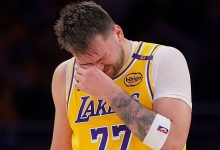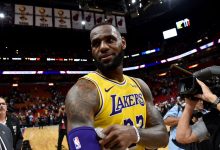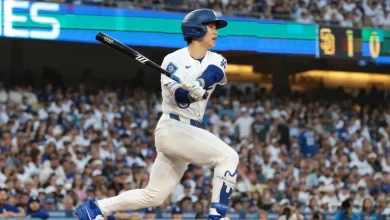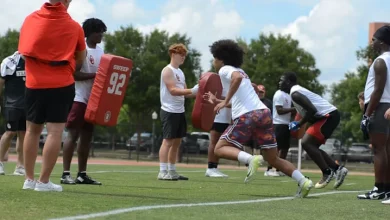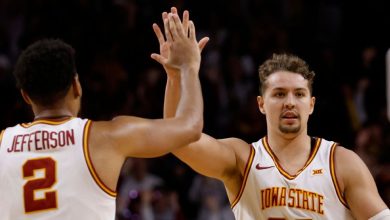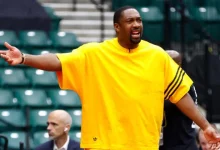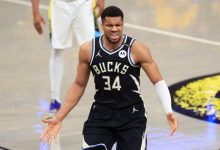Regarding Lakers rookie Bronny James, NBA legend Charles Barkley was right.
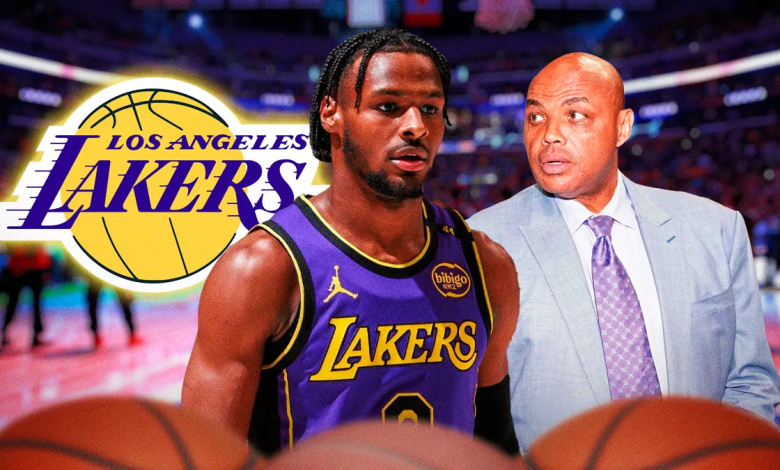
Charles Barkley has been an outspoken figure in the NBA for decades, known for his blunt opinions and larger-than-life personality. His commentary on the NBA and its players often stirs debate, but when he weighed in on Bronny James, the son of LeBron James and a highly anticipated rookie for the Los Angeles Lakers, his thoughts seemed to strike a chord with many basketball fans and analysts alike. Barkley’s assertion that Bronny James should not be under the immense pressure of living up to his father’s legacy is both a valid and important perspective. In this piece, we’ll explore why Barkley’s stance on Bronny is not only fair but also crucial to understanding the development of young players in today’s NBA.
The Weight of Expectations on Bronny James
Bronny James has been in the public eye since he was a child. Growing up as the son of one of the greatest basketball players of all time, LeBron James, has naturally subjected him to a level of scrutiny few athletes—let alone teenagers—can relate to. From his early days on the AAU circuit to his high school career, Bronny has been consistently under a microscope. While his talent is undeniable, the expectations placed on him have always seemed disproportionate to his actual accomplishments.
Barkley’s comments reflect an important understanding of how the immense pressure to live up to a family legacy can impact a young athlete’s career. LeBron James, after all, is not just any NBA star; he is considered by many to be the greatest player of all time, and the expectations placed on Bronny to follow in those footsteps are incredibly high. Charles Barkley has a nuanced view of this, recognizing that the generational gap between LeBron’s era and the current NBA means that comparing Bronny to his father might not only be unfair but also unproductive.
The Reality of NBA Rookies and Development
Bronny James is still a rookie, which means he is in the very early stages of his professional career. The adjustment from high school or college ball to the NBA is already an enormous leap, but in Bronny’s case, the transition is complicated by the unique pressures that come with being LeBron’s son. Even before he steps onto the court, people have already labeled him as the next big thing, whether that’s fair or not.
Charles Barkley’s point about Bronny needing time to develop as an NBA player without being overshadowed by his father’s legacy is crucial. Every NBA rookie faces challenges: adjusting to the speed of the game, dealing with physical and mental fatigue, learning the nuances of the pro game, and, most importantly, building their own identity as a player. For Bronny, all of these challenges are magnified by the expectation that he will eventually be able to carry the torch from his father.
What Barkley gets right is that Bronny needs to be allowed to grow as a player without being forced to live up to unrealistic expectations right away. In today’s NBA, rookies rarely make an immediate, seismic impact the way some fans might expect. While some players like Zion Williamson or Luka Dončić came into the league with immense hype and delivered on those expectations, most rookies experience gradual development rather than instant stardom.
Barkley understands that players like Bronny—young, talented, but still finding their place—need time to grow and evolve. He isn’t dismissing Bronny’s potential; instead, he’s advocating for a more patient, measured approach to his development, which is both realistic and in the best interest of Bronny’s future.
The Burden of Legacy
It’s difficult to imagine the weight of living up to the legacy of LeBron James. LeBron’s career has been nothing short of historic, and there are few who would argue against his place as one of the greatest players to ever play the game. But that also creates a significant burden on his children, particularly Bronny. Barkley’s point is that the pressure to match or exceed that legacy can be overwhelming, and it’s something that will undoubtedly affect Bronny’s mental approach to the game.
The idea of the “Burden of Legacy” is not unique to Bronny; it’s a challenge faced by many children of famous athletes. Kobe Bryant, for example, also faced immense pressure to live up to his father, Joe Bryant, who had a professional basketball career, though not one that reached the heights of Kobe’s. Similarly, Michael Jordan’s sons were under the spotlight, though they did not pursue basketball careers of the same magnitude. But Bronny’s case is different. His father is still at the top of his game, playing at an elite level in his late 30s, and has set an extraordinarily high bar for his children to follow.
Barkley’s argument, in this case, is clear: Bronny should be allowed to develop without the constant comparisons to his father. This doesn’t mean that Bronny won’t face comparisons as long as LeBron is in the league; of course, he will. But the emphasis should be on Bronny’s own potential and growth, not the impossible standard of surpassing his father.
The Role of the Lakers Organization
Another critical aspect of this situation is the role of the Lakers organization. The Lakers, one of the most storied franchises in NBA history, have a long tradition of excellence. With the addition of Bronny James, there is an opportunity to not only develop a new star but also to create a dynamic that could be beneficial for both Bronny and LeBron in the latter stages of LeBron’s career. However, this unique family dynamic should not become the focus of the Lakers’ approach to Bronny’s development.
Barkley’s perspective, in this sense, also highlights the importance of the team’s role in easing the pressure on Bronny. The Lakers must ensure that they give Bronny the space and support to develop at his own pace. With LeBron James still on the roster, there is an opportunity for mentorship, but it should be a balanced mentorship—one that encourages growth rather than putting an undue amount of pressure on the young player to fulfill some expectation. The Lakers, as an organization, have the resources and the experience to help Bronny navigate this early stage of his career without overwhelming him with expectations.
The Long Road Ahead for Bronny
While the hype surrounding Bronny James is intense, it’s essential to remember that his journey is only just beginning. Even if he shows flashes of brilliance during his rookie season, the reality is that success in the NBA is a marathon, not a sprint. Charles Barkley’s call for patience is an acknowledgment of the fact that Bronny’s development will take time, and it will require a long-term view rather than expecting immediate results.
Looking at Bronny’s skill set, he has the potential to be a solid NBA player in his own right, but the road to becoming an All-Star, let alone a Hall of Famer like his father, is filled with obstacles. It’s unfair and unwise to judge him based on his father’s accomplishments. Instead, the focus should be on Bronny’s growth as an individual player and the unique opportunities he has, both in terms of learning from LeBron and being part of a high-caliber organization like the Lakers.

